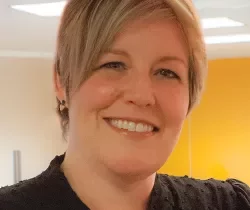As we’ve watched events be forced to postpone, change location and/or go virtual, it got us thinking—do these changes affect an event’s brand? Not if the brand story is strong.
Your brand story is a narrative you create around your event that inspires an emotional response. It goes beyond the standard value proposition of describing show features to convey how the experience helps participants be more productive, make more money and advance their careers. In telling a brand story, you draw people into a narrative they not only want to be a part of but also feel they need to be a part of. This holds true whether the event is in person or virtual.
As you build a great story, remember that your event and its attendees are part of a larger mission: to advance the industry, inspire innovation and foster the exchange of ideas. There’s the challenge of tapping into new markets, predicting trends or planning for the future. There’s a quest to find business partners or solve longstanding problems. With all of that in mind, here are the key components to a strong brand story:
Take the perspective of your attendees.
In the brand story of an event, your attendee should be the hero, your event the source of their superpowers. Your event can endow them X-ray insight, an inspiring vision of the possibilities, an uncanny ability to predict the future or the knowledge and skills they must have to outwit the competition. If they don’t attend, they will not, so to speak, win the day.
Focusing on your attendees and their challenges will reveal what’s most important about your event from their perspective. For example, when considering the amount of time attendees can realistically spend interacting with exhibitors, perhaps a matchmaking service could matter more to them than whether you have 1,000 or 1,500 suppliers—and your story is about finally meeting a supplier that solved a nagging problem.
Define your event by the experience and benefits it provides.
If attendees come to your show to be inspired and re-energized, they likely want to hear about hands-on, interactive exhibits, lively forums and creative opportunities to network and engage. Convey the emotional experience of the show along with what takeaways they can expect from speakers and experts—the ah-ha! moment of happening upon a game-changing technology they never knew existed, the relief of solving an issue or their enthusiasm to implement a new strategy.
By focusing on the benefit, you have a brand story that demonstrates the value you bring to your customers and reflects your organization’s mission. By evoking emotions, you encourage loyalty, enthusiasm and word-of-mouth promotion.
Get loyal attendees to add their stories to yours.
Gather testimonials. Encourage interactions on social media. Offer incentives for posting a video. Add “forward to a friend” messages to your emails. But give them direction or a question to answer: How did attending improve how you work? What aspect surprised/amazed you? What did you learn that you were still thinking about six months later?
Quick tip: Edit testimonials for spelling only; let them talk about the show naturally and with emotion. It will lend more credibility to the quote and give it a sense of authenticity.
Make sure the experience matches the story you are telling.
Branding is an ongoing, intentional process. You can’t control everything about your story, but you can control the touchpoints. Make sure your operations team communicates with marketing to keep your promises in line with reality. Don’t try to be something you’re not.
By focusing on the story of attendees’ struggles and hoped-for victories, you will make better decisions about the type of experience(s) and content to offer, provide more value, drive engagement and inspire loyalty.
Don’t miss any event-related news: Sign up for our weekly e-newsletter HERE and engage with us on Twitter, Facebook, LinkedIn and Instagram!



Add new comment